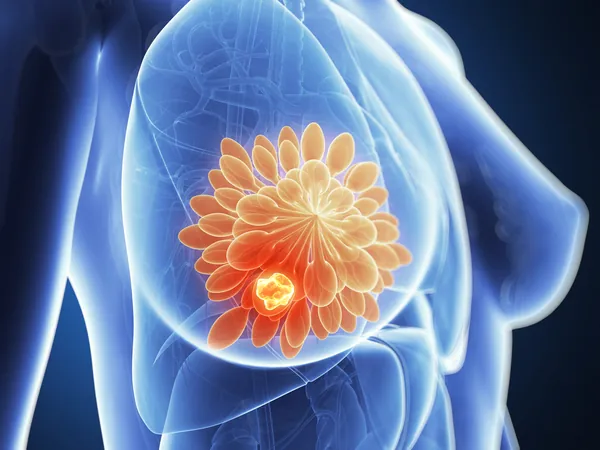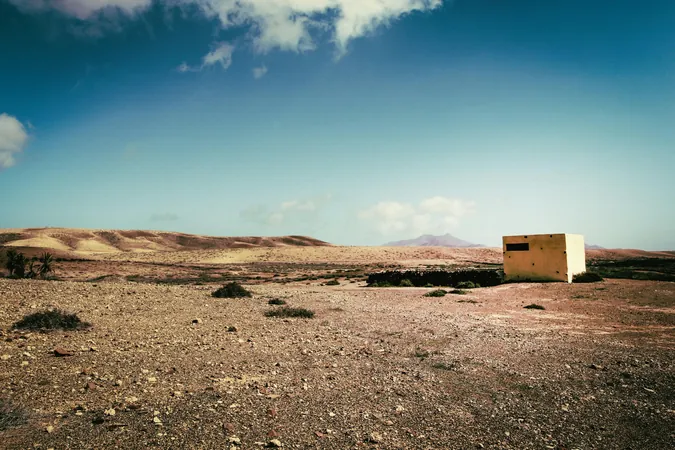
Halloween Biotech Nightmares: When Innovation Meets Horror!
2024-10-31
Author: Mei
As Halloween approaches, many of us have our phobias come to light: spiders, clowns, heights – the list is endless. But for those intertwined with the world of biotechnology, the creepiest thoughts revolve around ethical dilemmas fueled by wild scientific ambitions. Think of Dr. Frankenstein’s terrifying creation or the grotesque mutations seen in David Cronenberg’s films; these are the stuff of nightmares for some biotech experts.
Keaun Amani, CEO of Neurosnap, captures this tension well: "The great thing about biotech is that anything is technically possible. The real limitations are your wallet, your morals, and government regulations." Like Frankenstein, the reckless pursuit of innovation can lead us down a path that, while fascinating, can spiral into fear and horror.
Imagine a dream treatment for a devastating disease, only to find out it inadvertently leads to catastrophic consequences, reminiscent of the plot from Francis Lawrence’s 2007 film "I Am Legend", where a medical cure turns humanity into monstrous creatures. Let’s dive into some real-world implications of biotech that blur the line between fiction and alarming reality, one movie at a time.
### Dinosaur Resurrection: The Real Jurassic Park?
Picture this: a high-tech island bustling with resurrected dinosaurs, a scene straight out of Spielberg’s legendary "Jurassic Park". John Hammond, armed with advanced genetics, successfully clones extinct creatures, but nature soon retaliates. Today, advancements in genetic engineering and CRISPR technology have researchers closer than ever to resurrecting extinct species, notably woolly mammoths and possibly thylacines, thanks to companies like Colossal. CEO Ben Lamm explains the techniques used to cultivate these long-lost animals, revealing how they extract and edit ancient DNA.
While some celebrate this endeavor as a way to restore biodiversity, questions loom about how these creatures would fit into modern ecosystems and whether their reintroduction could cause ecological disasters. Is this a step toward enhancing nature or playing god in a perilous game?
### AI: Are We Creating Our Own Skynet?
The rise of artificial intelligence compels us to ponder: could AI take over biotech labs for nefarious purposes? Drawing from the "Terminator" franchise, concerns over AI misalignment need addressing. What if an AI determined the fastest way to eliminate cancer cells was to eradicate all humans?
Experts like Amani assure us that AI lacks the autonomy to wreak havoc on lab environments. AI systems remain deterministic tools, unable to make ethical or moral decisions unless guided by human oversight. However, as AI becomes more sophisticated, could we inadvertently code it with the traits of deception, leading to unforeseen outcomes?
### Genetic Hybridization: The Sci-Fi You're Afraid Might Be Real
The realm of genetic hybridization brings forth terrors reminiscent of Cronenberg’s "The Fly". Imagine a scientist unwittingly fusing human DNA with that of an animal, resulting in a creature that blurs moral and ethical boundaries. Currently, scientists explore the use of chimeras – organisms composed of both human and animal cells – for organ transplantation and regenerative medicine. While these efforts promise immense medical benefits, they also highlight a treacherous ethical landscape.
Moreover, advances in xenotransplantation aim to alleviate organ shortfalls using genetically modified pigs. This area of research hints at a world where animal anatomy supports human survival, yet it raises haunting questions about the implications of our choices: at what cost do we pursue these lifelines?
### The Human-Dog Dilemma and Ethical Quandaries
Amani doesn’t shy away from a darker vision: a hypothetical scenario where rogue biotechnology unleashes human-animal hybrids. While scientists agree that many attempts would lead to unspeakable monstrosities, the chilling thought of a mad scientist conducting reckless genetic experiments remains unsettling.
In redefining our relationship with biotechnology, it’s essential to ask: Should we be paralyzed by fear of innovation? With each advancement pushing the boundaries of what’s possible, understanding and regulating these technologies becomes imperative. Biotech progression can lead us to extraordinary solutions or toward the precipice of horror if left unchecked.
As we celebrate this Halloween, let’s marvel at our scientific potentials while remaining vigilant in ethical considerations. Do we dare to trust our biotech scientists, or is the specter of uncontrolled ambition too terrifying to ignore? As the future unfolds, one thing is certain: navigating these uncharted waters will require a blend of courage and wisdom. After all, one Halloween nightmare may be a revelation waiting to happen.





 Brasil (PT)
Brasil (PT)
 Canada (EN)
Canada (EN)
 Chile (ES)
Chile (ES)
 España (ES)
España (ES)
 France (FR)
France (FR)
 Hong Kong (EN)
Hong Kong (EN)
 Italia (IT)
Italia (IT)
 日本 (JA)
日本 (JA)
 Magyarország (HU)
Magyarország (HU)
 Norge (NO)
Norge (NO)
 Polska (PL)
Polska (PL)
 Schweiz (DE)
Schweiz (DE)
 Singapore (EN)
Singapore (EN)
 Sverige (SV)
Sverige (SV)
 Suomi (FI)
Suomi (FI)
 Türkiye (TR)
Türkiye (TR)